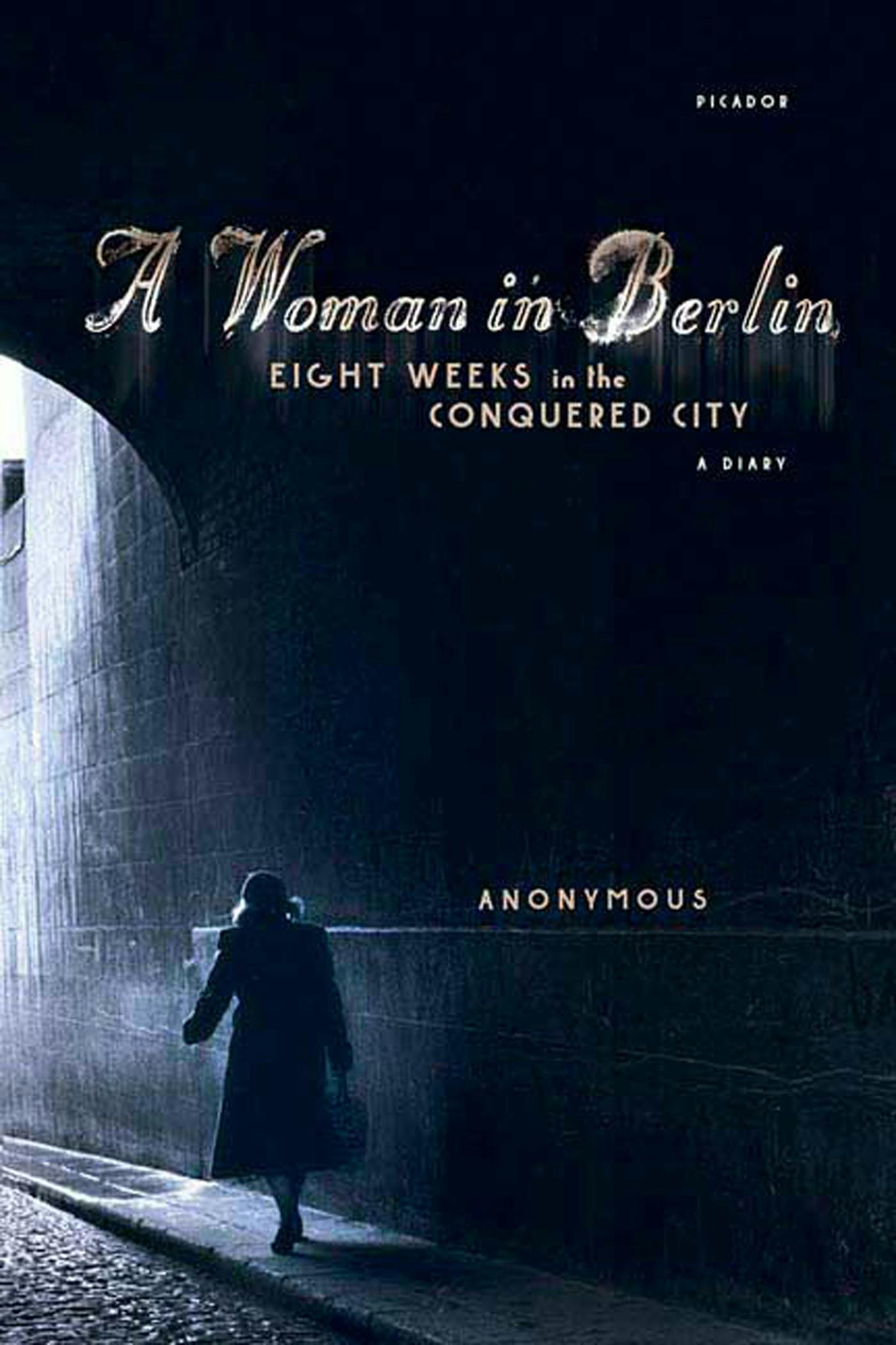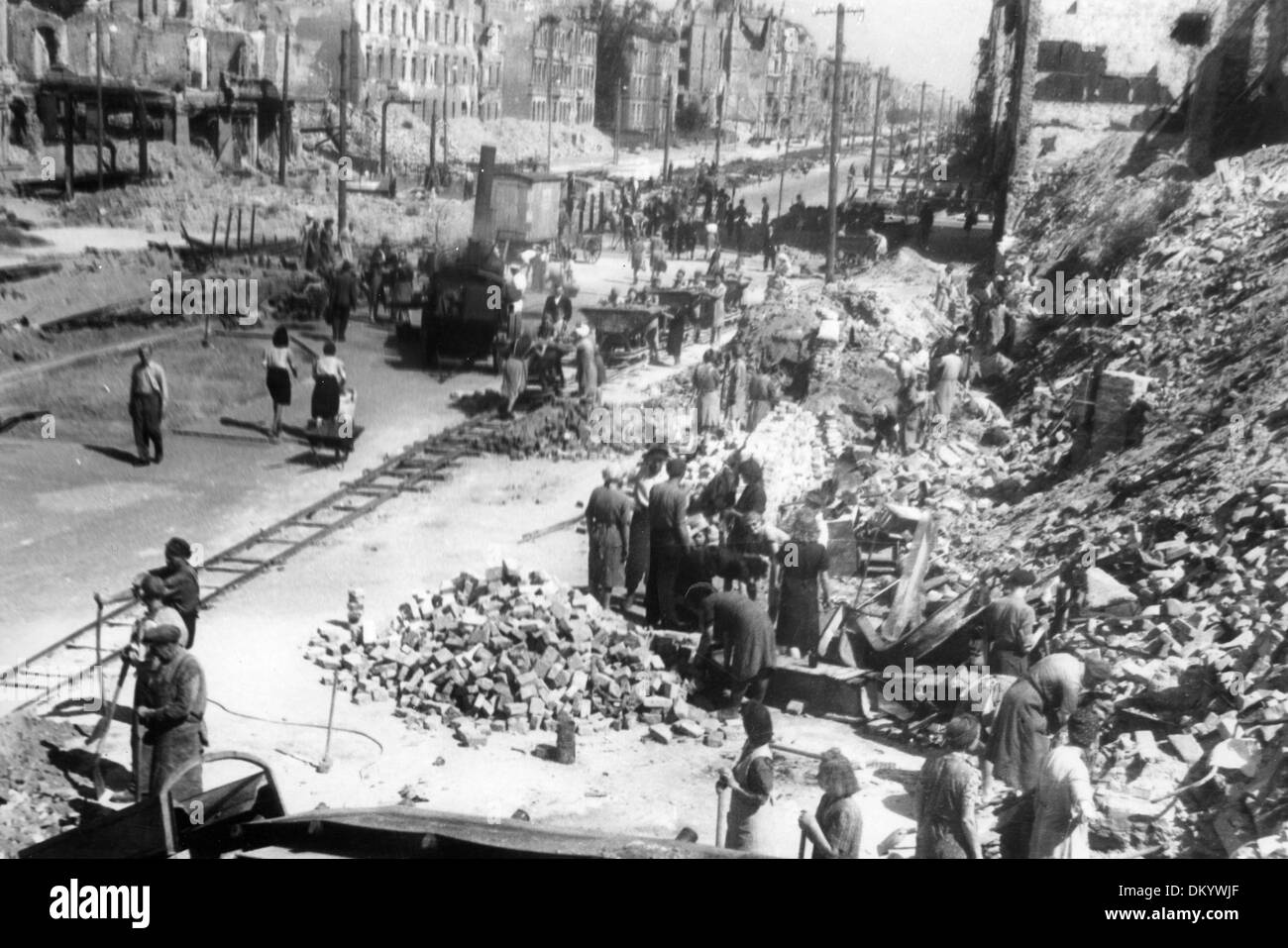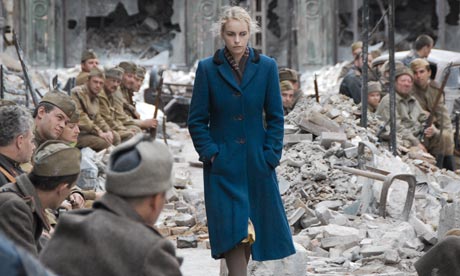A Woman in Berlin: Navigating the Ruins of War and the Shadows of Occupation
Related Articles: A Woman in Berlin: Navigating the Ruins of War and the Shadows of Occupation
Introduction
With great pleasure, we will explore the intriguing topic related to A Woman in Berlin: Navigating the Ruins of War and the Shadows of Occupation. Let’s weave interesting information and offer fresh perspectives to the readers.
Table of Content
A Woman in Berlin: Navigating the Ruins of War and the Shadows of Occupation

"A Woman in Berlin" is a poignant and unflinching account of the brutal realities of life in Berlin during the immediate aftermath of World War II. Published anonymously in 1954, the diary entries of an unnamed woman offer a raw and intimate perspective on the city’s devastation, the pervasive fear and uncertainty, and the rampant sexual violence perpetrated by Soviet soldiers. The book, a powerful testament to human resilience and the enduring strength of the human spirit, has resonated with readers for decades, becoming a cornerstone of historical literature.
The Historical Context
The diary entries cover the period from April 20, 1945, the day Soviet troops liberated Berlin, to June 22, 1945. The city, once a symbol of Nazi power, lay in ruins. Infrastructure was destroyed, food was scarce, and the population was grappling with the aftermath of a devastating war. The victorious Soviet soldiers, themselves scarred by the conflict, brought with them a sense of raw power and a thirst for retribution.
The Author’s Voice
The author, whose identity remains unknown, is a woman of extraordinary courage and resilience. Through her diary entries, she chronicles the daily struggle for survival in a city teetering on the brink of chaos. The reader is drawn into her world through vivid descriptions of the physical and psychological devastation, the constant fear of hunger and violence, and the desperate search for hope amidst the ruins.
The Power of the Personal
The book’s strength lies in its raw honesty. The author’s voice is devoid of sentimentality or judgment, offering a stark and unflinching portrayal of the atrocities she witnessed. She writes about the sexual violence inflicted upon herself and countless other women, not as a victim, but as a survivor, revealing the psychological impact of such trauma with unflinching honesty.
The Importance of the Diary
"A Woman in Berlin" transcends a personal account to become a powerful historical document. The diary offers a unique perspective on the complexities of the Soviet occupation, revealing the brutality and the vulnerability of both the victors and the vanquished. It sheds light on the collective trauma of war and the profound impact it had on the lives of ordinary people, particularly women.
The Book’s Impact
Published anonymously, the book was initially met with mixed reactions. Some dismissed it as sensationalized propaganda, while others recognized its historical significance and the raw power of its narrative. Over time, "A Woman in Berlin" gained recognition as a vital contribution to our understanding of the war’s aftermath. It has been translated into multiple languages and has been the subject of numerous academic studies and discussions.
Frequently Asked Questions:
1. Why was the book published anonymously?
The author chose to remain anonymous due to the sensitive nature of the subject matter. The diary entries detailed acts of sexual violence and the realities of life under Soviet occupation, which were considered taboo topics at the time. The author likely feared repercussions for herself and her family if her identity was revealed.
2. How accurate is the book’s depiction of events?
The book has been corroborated by numerous historical sources and eyewitness accounts. While some details may be subject to interpretation, the overall narrative remains consistent with the historical record.
3. What is the book’s significance for understanding the aftermath of World War II?
"A Woman in Berlin" provides a vital perspective on the complexities of the Soviet occupation, the human cost of war, and the psychological impact of trauma. It offers a unique and often overlooked aspect of the war’s aftermath, highlighting the experiences of women during a time of profound upheaval.
4. What are the book’s enduring themes?
The book explores themes of resilience, survival, the human capacity for both cruelty and compassion, and the enduring power of the human spirit in the face of adversity. It also sheds light on the lasting impact of war, particularly on the lives of women, and the importance of confronting difficult truths.
Tips for Reading "A Woman in Berlin":
- Approach the book with an open mind and a willingness to engage with difficult subject matter. The book deals with themes of violence, trauma, and sexual abuse.
- Be aware of the historical context. The events described in the book took place in a specific time and place, and it is crucial to understand the broader historical context to fully appreciate the narrative.
- Pay attention to the author’s voice. The book’s strength lies in its raw honesty and the author’s unflinching portrayal of the events she witnessed.
- Consider the book’s impact on the reader. The book can be emotionally challenging, but it also offers a powerful testament to the human spirit and the importance of confronting difficult truths.
Conclusion:
"A Woman in Berlin" is a powerful and enduring testament to the human spirit’s capacity for resilience and survival in the face of unimaginable adversity. The diary entries, written with unflinching honesty, offer a unique and poignant perspective on the complexities of the Soviet occupation and the lasting impact of war on the lives of ordinary people. The book serves as a stark reminder of the human cost of conflict, the importance of confronting difficult truths, and the enduring power of the human spirit.








Closure
Thus, we hope this article has provided valuable insights into A Woman in Berlin: Navigating the Ruins of War and the Shadows of Occupation. We appreciate your attention to our article. See you in our next article!